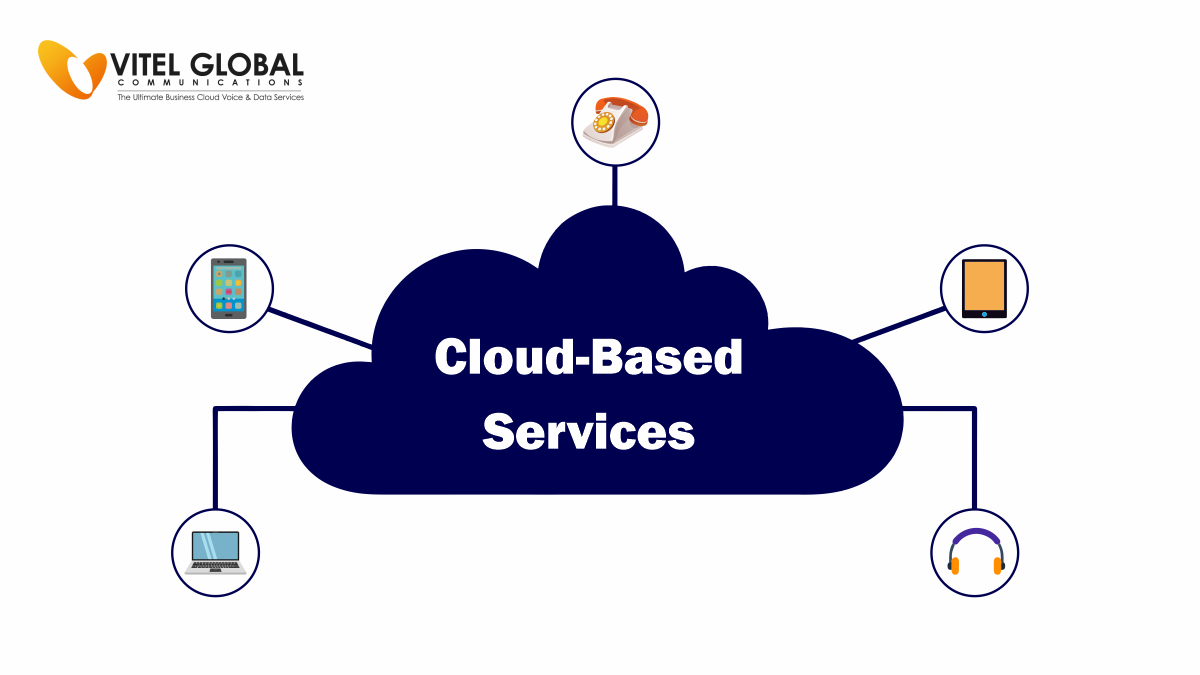The logistics sector continuously changes, and businesses seek methods to make their operations more efficient. With better flexibility, scalability, and cost reductions, cloud-based phones have emerged as a game-changing innovation for the logistics sector. Businesses may reduce hardware and infrastructure expenses by employing cloud technology in logistics, and they can access real-time data from any location.
Businesses may increase their efficiency and reactivity with cloud computing in logistics by giving them a competitive edge. This blog will examine the various benefits of cloud computing for logistics companies.
Why is Supply Chain Agility Important in Cloud-Based Phones in Logistics?
When conversing on cloud-based phones in logistics, the term “supply chain agility” refers to a logistics operation’s ability to quickly and effectively respond to changes in the supply chain’s situations, disruptions, and demands using cloud-based phone communication and collaboration tools. It entails utilizing cloud technology to boost the logistics process’ flexibility, responsiveness, and adaptability, thus improving supply chain performance.
The objective is to maintain a flexible, adaptable, and knowledgeable supply chain that can quickly deal with any changes that might arise, whether good or bad.
Agile Supply Chains are Essential for
- Consider the external factors that influence your supply chain logistics, regardless of how stable things are.
- Exploring value chain elements that are impacted by industry disruption
- Using technology and procedures that are more proactive to address pain points in the value chain
- Continuous process analysis and monitoring, cost savings from manufacturing, cross-functional cooperation, and process adjustments as necessary.
Advantages of Cloud-Based Phones in Logistics
A supply chain’s management might be challenging. However, operations are becoming more noticeable, and it is simpler for supply chain managers and other team members thanks to contemporary solutions like cloud-based software. However, this section will go through some of the advantages of cloud-based solutions that are more specialized.
1. Efficient communication and coordination
Supply chains naturally have several contact points. Additionally, coordinating with everyone might be challenging when many people, departments, and companies are involved.
Making sure everyone is informed of the most recent developments and is on the same page can be made possible using cloud-based software. Using cloud contact centre software, you may communicate online with everyone in your supply chain, including clients, suppliers, and coworkers.
Cloud-based technologies allow you to centralize communications, instantly add new clients to a database that everyone can access, automatically transcribe calls, and save all data in the cloud, but they also ensure a high-quality connection.
2. Collaboration
Collaboration is crucial in supply chain management, and cloud computing takes it to the next level. Let’s imagine that you must cooperate with vendors in several time zones. Cloud-based collaboration systems will help you save time and effort instead of exchanging endless emails or phone calls.
No matter where they are, everyone can be in sync with shared access to data, documents, and project management tools. The cloud is a space where ideas interchange, and choices are made, much like a virtual conference room.
Collaboration becomes smooth with cloud computing as your ally, increasing productivity and propelling your entire supply chain to success.
3. Data-driven insights
Data collection is one thing, but using that analysis to spur growth is quite another.
You may monitor data analytics using cloud-based tools to reveal insightful information to help you decide about your supply chain. Can track real-time data from multiple supply chain elements in real-time and examine past data using a variety of logistics, inventory, and enterprise resource planning tools.
You can forecast demand patterns using this information, optimize inventory levels, and ensure you keep the appropriate stock levels.
Cloud computing transforms into your crystal ball by assisting you in making informed decisions that advance your supply chain. It paves the path for productivity, financial savings, and pleased clients.
Mastering the Art of Text Messaging: Essential Tips and Tricks
4. Low Investment
Cost savings are usually a top concern when managing a supply chain. The opportunity to cut costs with cloud computing is enormous.
Heavy upfront investments in hardware and infrastructure are no longer necessary with cloud-based solutions. Instead, like a utility bill, you only pay for what you use and can measure up or down depending on your company’s needs.
Additionally, cloud computing reduced the requirement for costly on-premise systems to be maintained and upgraded. The cloud provider is responsible for maintaining hardware, updating software, and implementing cybersecurity measures.
It is comparable to having a team of IT professionals working 24 hours to ensure your supply chain operates without your involvement. These cost savings can be included in your company’s operations to support growth and innovation, such as in areas like R&D or increasing your product line.
5. Flexibility and Scalability
The field of supply chain management is robust; thus, flexibility is essential.
Imagine a sudden increase in demand for your product or service. You may increase your resources by employing cloud computing systems like transportation or warehouse management software to match the additional order.
For instance, putting in place Warehouse Management System (WMS) software can immediately assist you in streamlining your picking and packaging procedures, ensuring that the increasing volume of orders is handled effectively.
Cloud Computing’s Potential for Supply Chain Management
Cloud-based solutions are being used by businesses more frequently for supply chain management tasks. Cloud apps will offer flexibility to scale at ease as businesses digitalize their supply chain strategies. As long as the remote operations continue, employees can access their data from the office or home.
Conclusion
In conclusion, supply chain agility in the context of cloud-based phones in logistics denotes the capacity to swiftly and effectively respond to various supply chain difficulties using cloud-based communication and collaboration tools. It enables logistics operations to make more adaptive, flexible, and data-driven decisions.
The pros of cloud computing for supply chain management are apparent. Cloud-based technologies are important for any new company trying to expand, from better communication and collaboration to data-driven insights and scalability.
Consider how cloud-hosted phone service can improve your team’s efficiency, coordination, and productivity if this is the first time you have looked into them. You may exceed demand, scale up your services, and increase customer satisfaction by streamlining supply chain procedures.






